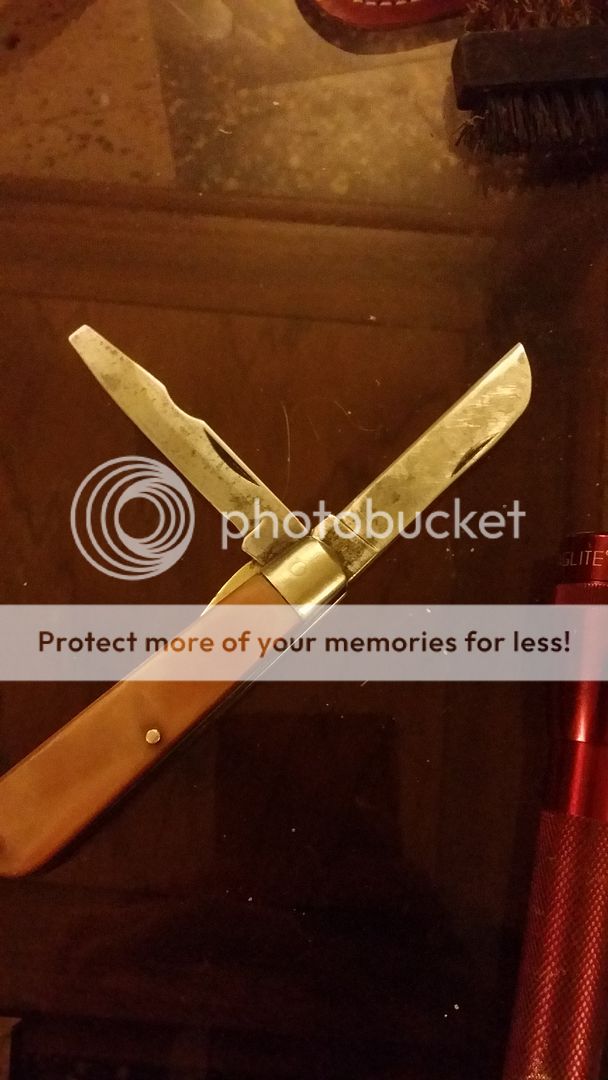I was reading the thread on Handle/slabs materials - properties, cons & pros? and that got me thinking about my shop knives.
Last fall I got a new S-M Keystone Barlow Stag and a week later, it was on the roof of Mom's house cutting tubes of roofing cement. Roofing cement ends up on everything but it cleaned up without harm. What ever knife I'm have on me, gets used for what ever comes up that day.
Having said that, there are some jobs I don't like using my good knives on. Things like transmission fluid, gas, carb cleaner, antifreeze, dry wall and scraping are hard on handles and blades.
I have two knives that do all those nastier jobs. One is a Colonial Scout 2205 a not very accurate copy of the Camillus MIL-K-818. All 440 stainless so nothing shy of acid will hurt it.
The new addition is a Colonial Military E2 electrical knife, it's a little heavier built than a TL-29. The blades are 440C, with what looks like Delrin for the handles. One side of the screw driver is sharpened to 30 per side, for use as a scraper. Right now it's getting used to upgrade and add outlets around the house and garage.
These knives aren't carried just stored in a drawer of the tool box, like any other tool.
So the question is, do you have traditional knives that are dedicated to the real Dirty Jobs.

Last fall I got a new S-M Keystone Barlow Stag and a week later, it was on the roof of Mom's house cutting tubes of roofing cement. Roofing cement ends up on everything but it cleaned up without harm. What ever knife I'm have on me, gets used for what ever comes up that day.
Having said that, there are some jobs I don't like using my good knives on. Things like transmission fluid, gas, carb cleaner, antifreeze, dry wall and scraping are hard on handles and blades.
I have two knives that do all those nastier jobs. One is a Colonial Scout 2205 a not very accurate copy of the Camillus MIL-K-818. All 440 stainless so nothing shy of acid will hurt it.
The new addition is a Colonial Military E2 electrical knife, it's a little heavier built than a TL-29. The blades are 440C, with what looks like Delrin for the handles. One side of the screw driver is sharpened to 30 per side, for use as a scraper. Right now it's getting used to upgrade and add outlets around the house and garage.
These knives aren't carried just stored in a drawer of the tool box, like any other tool.
So the question is, do you have traditional knives that are dedicated to the real Dirty Jobs.







